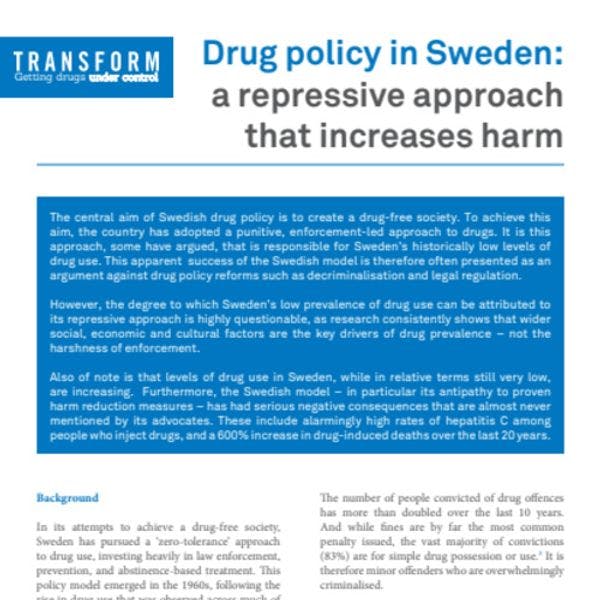Política de drogas en Suecia: un enfoque represivo que incrementa los daños
Para alcanzar una sociedad sin drogas, Suecia ha adoptado un enfoque punitivo y basado en la represión. Esto ha dado lugar a graves consecuencias negativas para la salud de las personas que usan drogas. Más información, en inglés, está disponible abajo.
Suscríbase a las Alertas mensuales del IDPC para recibir información sobre cuestiones relacionadas con políticas sobre drogas.
The central aim of Swedish drug policy is to create a drug-free society. To achieve this aim, the country has adopted a punitive, enforcement-led approach to drugs. It is this approach, some have argued, that is responsible for Sweden’s historically low levels of drug use. This apparent success of the Swedish model is therefore often presented as an argument against drug policy reforms such as decriminalisation and legal regulation.
However, the degree to which Sweden’s low prevalence of drug use can be attributed to its repressive approach is highly questionable, as research consistently shows that wider social, economic and cultural factors are the key drivers of drug prevalence – not the harshness of enforcement.
Also of note is that levels of drug use in Sweden, while in relative terms still very low, are increasing. Furthermore, the Swedish model – in particular its antipathy to proven harm reduction measures – has had serious negative consequences that are almost never mentioned by its advocates. These include alarmingly high rates of hepatitis C among people who inject drugs, and a 600% increase in drug-induced deaths over the last 20 years.
Keep up-to-date with drug policy developments by subscribing to the IDPC Monthly Alert.
